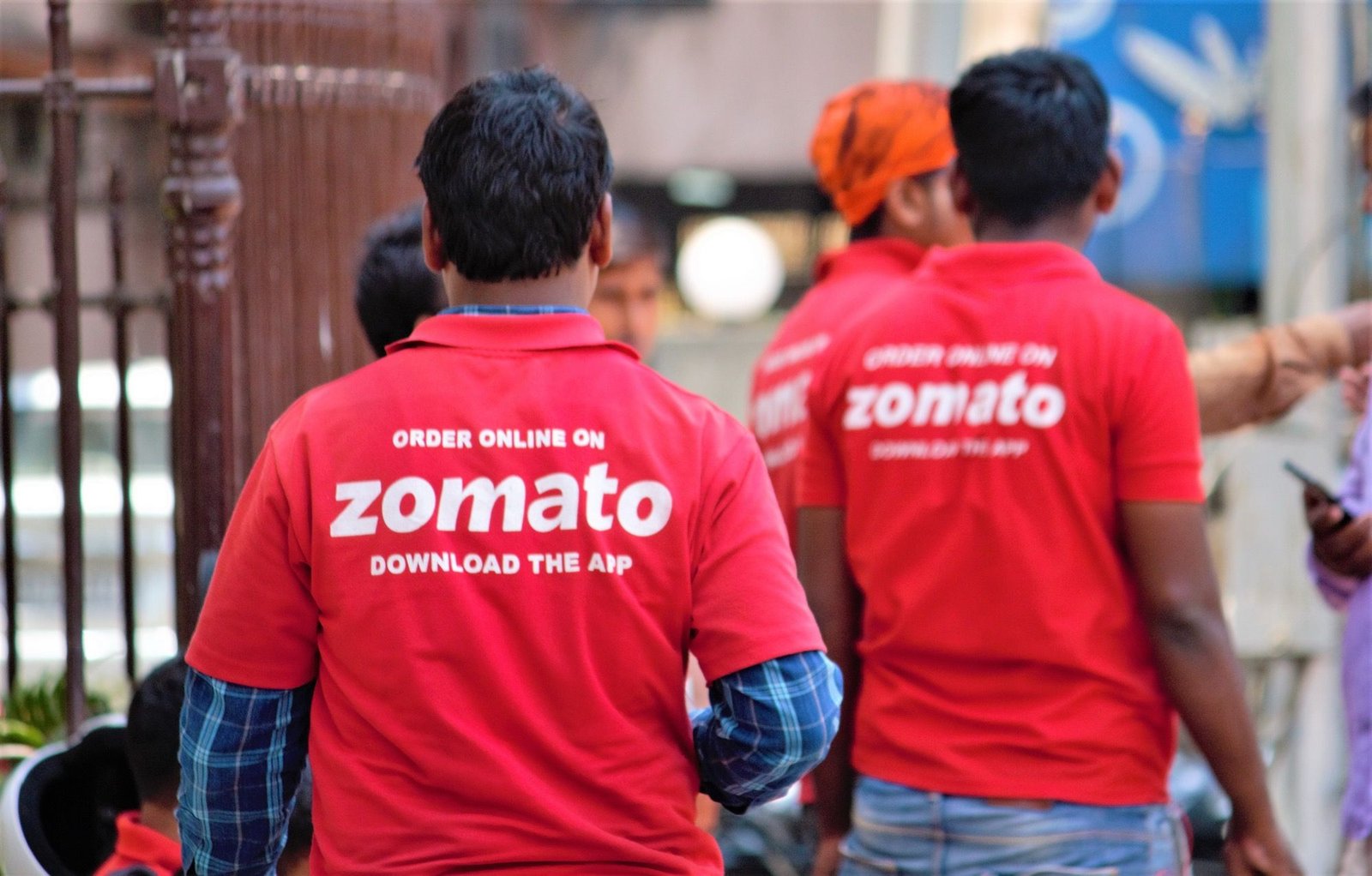Startup
‘Not raising money for aggressive discounting’: Zomato CFO

“We’re not raising money to start discounting more,” says Zomato’s finance chief Akshant Goyal, speaking about the company’s proposal to raise about $1 billion dollars.
“I think we could do what is right for the business first. And we don’t think therefore discounting is going to help our business at this point in time,” Goyal further added during the company’s post-earnings call.
While the final timeline and amount for the fundraise hasn’t been finalised yet and still needs shareholder approval, Zomato is looking to raise somewhere along the range of $1 billion subject to market conditions in a bid to strengthen its balance sheet.
Growth beyond metros
The foodtech major is focusing on increasing its quick commerce offerings with a wider assortment and increased penetration. It said it was on track to open 1,000 dark stores by the end of the financial year, and 1,000 more by the end of 2026.
Blinkit pared its market share in NCR regions from 47% to less than 40% as it tries to focus on building out markets beyond Delhi-NCR. It claims to currently be the largest player by gross order value (GOV) in all major metro cities outside of Chennai and Hyderabad.
Albinder Dhindsa-led Blinkit has been rapidly expanding across the country, especially in Tier II towns. While opening a single store in various cities can show market expansion, it is crucial to understand how many stores can be profitably operated within a city.
Therefore, the city count may not be the right indicator of the depth of this market at this point beyond the top eight cities, as Zomato is “still scratching the surface of the addressable market in the city”, according to Zomato executives.
“While we have seen success in most of the markets that we’ve gone into so far, but our immediate focus in terms of building out the infrastructure and business remains in the top eight cities because we still believe that is underserved from a supply standpoint,” noted Goyal.
Pricey quick commerce expansion
While the segment more than doubled its revenue to Rs 1,156 crore, the growth hasn’t been cheap, with reduced margins and take rates for Blinkit.
The margin has been impacted due to the fixed costs associated with opening new stores, which include expenses for staff and rent. It takes time for these stores to become operational. As a result, there hasn’t been any expansion in the contribution margin over the past two to three quarters, primarily due to ongoing expansion efforts, noted Akshant Goyal.
“Majority of the impact that you’re seeing (on take-rates) is because of the higher velocity of new store openings. So when we open a new store, typically it takes time to ramp up. So the take rates increase over time. So the mix of new stores is increasing. That’s why you see a little bit of decrease in the overall take rates,” noted Blinkit’s Albinder Dhindsa.
Moreover, the quick commerce operator said it does not see any impact on the throughput of existing stores with the launch of new dark stores. Blinkit plans to continue its building backend and customer infrastructure for high traction categories like beauty, electronics and toys.
In terms of future plans for the quick commerce arm, there are no loyalty programs and private labels on the card right now but the company said it will continue to evaluate all models.
Food Delivery and Stepping Out
On the food delivery front, peers in the space are expecting the segment to take a hit as food delivery is perceived as more of a discretionary spending. While Zomato hasn’t seen any impact from the general economic consumption slowdown, it plans to keep an eye out, noted Goyal.
Its food delivery segment—which continues to be its largest vertical—witnessed lower growth as compared to the last two quarters at just a 21% rise in the reporting quarter vs a 27% YOY rise in Q1 and a 28% rise in Q4FY24.
For its going out business, Zomato plans to focus on transitioning its dining out business and new ticketing business to the District app, at least for the foreseeable future. It is currently planning to launch the District app in the next four weeks.
On a consolidated basis, The Gurgaon-based company reported 68.5% higher operating revenue in Q2FY25 at Rs 4,799 crore. While, its profit narrowed on a QoQ basis to Rs 176 crore, from Rs 253 crore it clocked in the previous quarter.
Startup
Magenta Mobility’s FY24 revenue rises three fold, losses widen by 17.1%

Magenta Mobility on Thursday reported a 199.5% jump in its full-year revenue to Rs 35.53 crore compared to Rs 11.86 crore in the previous year helped by a significant rise in its revenue from services.
The company provides a 100% electric fleet and AI and IoT-enabled fleet management and data analytics platform to optimise logistics operations and deliveries. Revenue from these services for the year ended March 31, 2024, increased to Rs 30.17 crore compared to Rs 10.15 crore in FY23.
However, the company reported a 17.1% increase in its loss for the period to Rs 46.44 crore as opposed to Rs 39.66 crore in FY23, bogged down by rising expenses during the year. The 109.1% rise in expenses to Rs 90.17 crore was primarily due to rising driver costs, employee benefit expenses, and finance costs.
Magenta Mobility appoints drivers on a contract basis to provide services to its customers, which it accounts as an expense. The drivers’ cost for FY24 increased to Rs 18.49 crore, compared to Rs 6.34 crore in FY23.
The rise in demand for the company’s fleet comes amidst a boom in the last-mile delivery sector in India owing to the rise of ecommerce and quick commerce players. Magenta Mobility caters to clients such as Flipkart and hyper-local delivery platform Dunzo, among others.
Founded in 2017 by Maxson Lewis and Darryl Dias, the company last raised $22 million in a Series A funding round from BP Venture and Morgan Stanley India Infrastructure-managed investment fund.
Startup
Juspay cuts losses by 7.7% as revenue surges 49.6% in FY24

Payments startup Juspay Technologies saw its losses narrowing in FY24 as revenue growth outpaced expenditure. It narrowed its total loss for the period to Rs 97.54 crore, down 7.76% from Rs 105.75 crore in FY23.
According to the consolidated financial statements accessed from the Registrar of Companies, the SoftBank-backed fintech firm’s revenue from operations surged 49.64% to Rs 319.32 crore, up from Rs 213.39 crore in FY23.
Juspay’s primary revenue source—payment platform integration fees—brought in Rs 286.52 crore. Additional operating revenue from services like product implementation and support added Rs 32.80 crore.
Total expenses rose by 29.52% to Rs 443.74 crore in FY24, compared to Rs 342.59 crore in the previous year. This increase was largely driven by employee benefit expenses, which saw a 41.73% jump to Rs 303.36 crore, while other expenses increased slightly over 3.56% to Rs 123.76 crore.
Juspay, founded in 2012 by Vimal Kumar and Ramanathan RV in Bengaluru, specialises in developing payment orchestration solutions that act as a technology layer over traditional payment gateways.
The Accel-backed startup has also developed Namma Yatri, a mobility app focusing on ride-hailing services, leveraging Juspay’s strengths in payments and open-source protocols. Namma Yatri is built on the Beckn Protocol and aligns with the Open Network for Digital Commerce (ONDC), aiming to provide low-cost ride-hailing options and open access to digital mobility services.
Recently, Juspay decided to spin off Namma Yatri as an independent entity to attract separate investors and scale further. In February, the company said it acquired LotusPay in an all-cash deal to strengthen its offerings to the BFSI segment and merchants.
LotusPay, founded in 2016, pioneered NACH Debit technology with cloud-based software for merchants and banks. Using NPCI’s NACH Debit, it facilitates recurring payments for loans, insurance, and subscriptions.
Startup
Flipkart selects five startups for third cohort of Flipkart Leap Innovation Network

has selected five innovative startups for the third cohort of its flagship startup accelerator programme, Flipkart Leap Innovation Network (FLIN).
The cohort is introducing startups that are driving advancements across GenAI, omnichannel, analytics, and video commerce, the company said in a statement.
The selected startups— Intelligence Node, Invenzo Labs, StoryBrain, Phyllo, and D-ID— are set to run pilot programs with Flipkart to develop solutions.
“The selected startups get access to mentorship, resources, and the opportunity to execute pilot projects within the Flipkart ecosystem, scaling their solutions to meet the demands of India’s digital economy and e-commerce growth,” the company said.
Since its launch in 2022, the accelerator programme aims to accelerate the growth of the startup ecosystem in India, driving collaboration, and championing cutting-edge retail innovations.
“Through the FLIN programme, Flipkart continues to expand its role as a catalyst for innovation within India’s startup ecosystem, providing a collaborative platform for startups to test, refine, and deploy solutions that can shape the future of e-commerce in India,” said Naren Ravula, Vice President and Head – Product Strategy and Flipkart Labs.
The programme is designed to engage with startups through commercial partnerships in Flipkart’s areas of interest. Successful startups get the opportunity to scale up to a business partnership.
Over 20 startups from the initial two cohorts have concluded pilots working closely with the Flipkart Product and Engineering teams.
The company added that four startups from the previous cohort— Anagog, Speedsize, Sangti, and Vtion— have recently concluded successful pilot projects with Flipkart.
-

 Startup Stories1 year ago
Startup Stories1 year agoWhy Millennials, GenZs Are Riding The Investment Tech Wave In India
-

 Startup Stories1 year ago
Startup Stories1 year agoStartups That Caught Our Eyes In September 2023
-

 Startup Stories1 year ago
Startup Stories1 year agoHow Raaho Is Using Tech To Transform India’s Fragmented Commercial Trucking
-

 Startup Stories12 months ago
Startup Stories12 months agoMeet The 10 Indian Startup Gems In The Indian Jewellery Industry’s Crown
-

 Crptocurrency8 months ago
Crptocurrency8 months agoLither is Making Crypto Safe, Fun, and Profitable for Everyone!
-

 Startup Stories1 year ago
Startup Stories1 year agoHow Volt Money Is Unlocking The Value Of Mutual Funds With Secured Lending
-

 Startup Stories1 year ago
Startup Stories1 year agoWhy Moscow-Based Kladana Considers Indian SME Sector As The Next Big Market For Cloud Computing
-

 E-commerce1 year ago
E-commerce1 year agoTop Online Couponing Trends To Watch Out For In 2016




